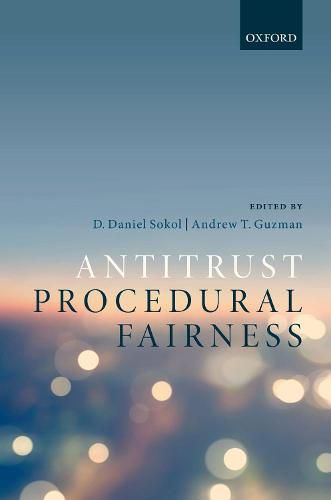Readings Newsletter
Become a Readings Member to make your shopping experience even easier.
Sign in or sign up for free!
You’re not far away from qualifying for FREE standard shipping within Australia
You’ve qualified for FREE standard shipping within Australia
The cart is loading…






Much of antitrust law scholarship has focused on substantive legal issues - theories of harm and changing law and policy. Surprisingly, there has been very little work that is comparative, on a fundamental element that is a critical building block to effective policy - procedural fairness. Procedural fairness encompasses issues of transparency and due process.Procedural fairness has been an important issue in global antitrust for some time. The types of due process concerns raised globally often relate to the lack of effective representation, the use of industrial policy by third parties, and procedural tools that do not allow for the most effective advocacy to lead to efficient outcomes.This book focuses on these issues and teases out common problems and distinct issues in particular jurisdictions, allowing for a rethink of creating a more effective system for procedural fairness, and explores these issues in each jurisdiction, along with highlights of particular cases in which due process issues have emerged.
$9.00 standard shipping within Australia
FREE standard shipping within Australia for orders over $100.00
Express & International shipping calculated at checkout
Stock availability can be subject to change without notice. We recommend calling the shop or contacting our online team to check availability of low stock items. Please see our Shopping Online page for more details.
Much of antitrust law scholarship has focused on substantive legal issues - theories of harm and changing law and policy. Surprisingly, there has been very little work that is comparative, on a fundamental element that is a critical building block to effective policy - procedural fairness. Procedural fairness encompasses issues of transparency and due process.Procedural fairness has been an important issue in global antitrust for some time. The types of due process concerns raised globally often relate to the lack of effective representation, the use of industrial policy by third parties, and procedural tools that do not allow for the most effective advocacy to lead to efficient outcomes.This book focuses on these issues and teases out common problems and distinct issues in particular jurisdictions, allowing for a rethink of creating a more effective system for procedural fairness, and explores these issues in each jurisdiction, along with highlights of particular cases in which due process issues have emerged.